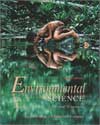

 Environmental Science: A Global Concern, 7/e Urbanization and Sustainable Cities Essay Quiz |
 2003 McGraw-Hill Higher Education
2003 McGraw-Hill Higher EducationAny use is subject to the Terms of Use and Privacy Policy.
McGraw-Hill Higher Education is one of the many fine businesses of The McGraw-Hill Companies.